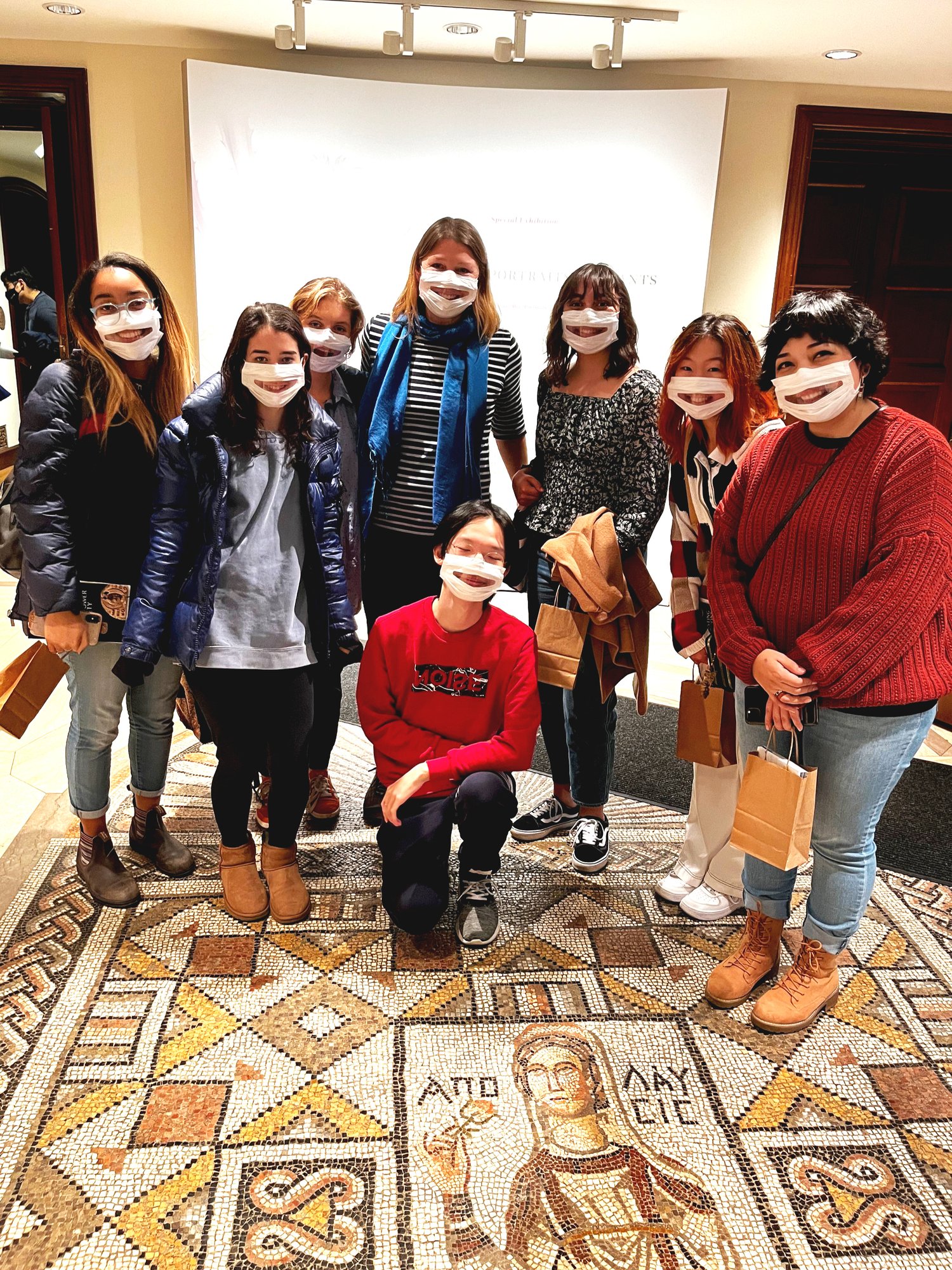What’s In a Name? (Dylan Lucke ARP.3)
Mosaic fragment with Border with Rams' Heads and Persian Double-Wing Motif, late 5th - early 6th century CE, cut stone tesserae and lime mortar. Top: Hatay Archaeological Museum; Bottom: Worcester Museum of Art.
My research for ARP involves analyzing the metadata for all of the images of mosaic fragments from Antioch in the current database stored in Artstor and linking these images according to their house group. I have noticed that sometimes there are 2 or 3 variations to a house or mosaic name. For example, a mosaic and its titular house name have been labeled: Ram’s heads, Rams’ Head, and Rams’ Heads by different books and by the museum that cares for the mosaic fragment. So, which one am I supposed to use for my project? In this example, I decided to go with the name used by the Worcester Museum of Art, where the mosaic is housed: House of the Rams’ Heads and Rams’ Heads Floor Mosaic. However, this highlights how arbitrarily these mosaics have been named. The mosaics and the houses are named based on modern interpretations of these artifacts and might not reflect the names that they were given, if any, during the period of their original creation.
Another example is the Green Carpet Mosaic, named simply for the green carpet that it looks like. Even though I am not researching the history behind these fragments in a more traditional way, the metadata project has made visible how modern influences play a role in how we take in, represent, and process ancient art. Moreover, because I am taking part in the decision for how the mosaic fragment will be recorded and represented on Artstor, each of my choices could potentially influence future research based on how I update a title or add a description. Working on this project has shown me to always be conscious about how I am interpreting history and historical artifacts from a modern lens and to always remain both curious and analytical when researching the past.
—Dylan Lucke
Cite as: Lucke, Dylan. “What’s in a Name?” in Antioch Recovery Project (December 20, 2023). www.antiochrecoveryproject.org/mosaics/whats-in-a-name-dylan-lucke-arp3

